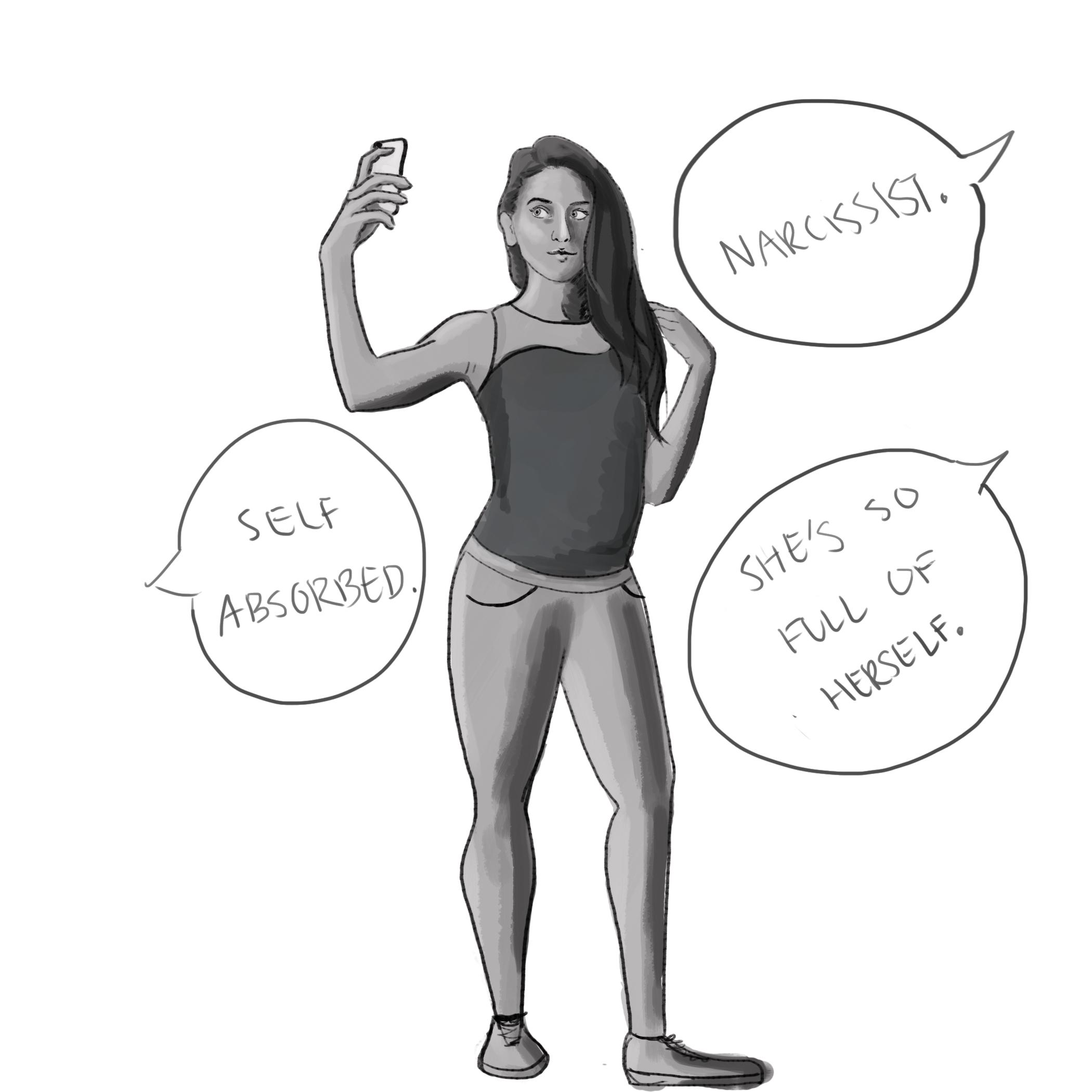I don’t necessarily need to be going anywhere to take a selfie. I don’t even need to be wearing makeup. Most of the time, I just take selfies whenever I feel like it. Taking a picture in the best possible lighting with a flattering filter can do wonders for my confidence, and I find myself feeling happier, prettier and more confident. However, many people, including the writers at the New York Times, believe that taking a selfie implies, “having narcissistic, psychopathic and Machiavellian personality traits and a high need for self-gratification.” I disagree. Rather than inciting obsessive behavior, selfies can actually be empowering for women, helping them reclaim their image and control their own reflection.
The average young woman spends a little over 48 minutes every day putting on makeup, doing her hair and then taking selfies, according to the UK Daily Mail. These 48 minutes aren’t spent developing “narcissistic and Machiavellian tendencies.” In reality, selfies help young women define their own beauty and cultivate their self-confidence. Women can decide what kind of picture they want to take, be it silly, cute or sexy.
Selfies push back against standard beauty norms. Female beauty standards have long been controlled by society; we contort ourselves to fit their unrealistic standards. However, if I am taking the picture, I decide what I want myself to look like. Rather than being seen through the eyes of the photographer, young women can embrace themselves and confront the world with love for their faces and bodies, promoting self-acceptance.
Millions of people around the world take selfies; not all of them are raging narcissists. Although it can often be seen as an act of narcissism, selfies allow the taker to feel happier because they can decide for themselves that they look good that day. They don’t have to wait for someone else to give them a compliment; they can take the process of feeling pretty and make it self-driven. Many influential people have already started turning the notion of the narcissistic selfie on its head. Celebrities have started to post pictures of themselves with acne cream on, in Lorde’s case, or sans makeup, in the case of Nicki Minaj. The mainstream media rarely showcases diverse, different and average looking girls. Selfies offer communities that people can be a part of and representation of diverse, happy girls.
A example of the empowerment selfies offer is the #BlackOut movement, several days in the year when black people all over the world take selfies and post them online in an effort to criticize beauty norms and increase representation. After the events of #BlackLivesMatter, many people got together and decided to use social media to create representation for themselves. The result was that millions of black people around the world found a community of people who looked like them and understood them. Many people expressed, through Twitter, that they finally felt beautiful, empowered, and comfortable in their own skin. One Tumblr user stated, “My skin is dark, my eyes are bright, my hair is thick and that’s all right.”
While taking a selfie, women should feel empowered, yet they look around and make sure nobody is looking. Society doesn’t allow women to be proud of their appearance; instead we ridicule them for appreciating themselves. We have to recognize that if a person is taking a selfie, that is their business. We have no right to make judgements about their habits. It is not right to make caricatures out of selfie takers. There are few negatives in taking selfies.
Prominent figures, such as Republican presidential candidate Ben Carson, claim that “endlessly photographing oneself and blasting it over social networks for others to admire implies obvious narcissism.” Narcissism, however, is an incorrect label. The selfie-taker is essentially saying, “This is my face, I have decided I like it, so I wanted to share myself with you.” Women are constantly discouraged when it comes to loving themselves. If, however, loving yourself and being self-confident is the new definition of being a narcissist, I’ll gladly accept the label and take my selfies with pride.



